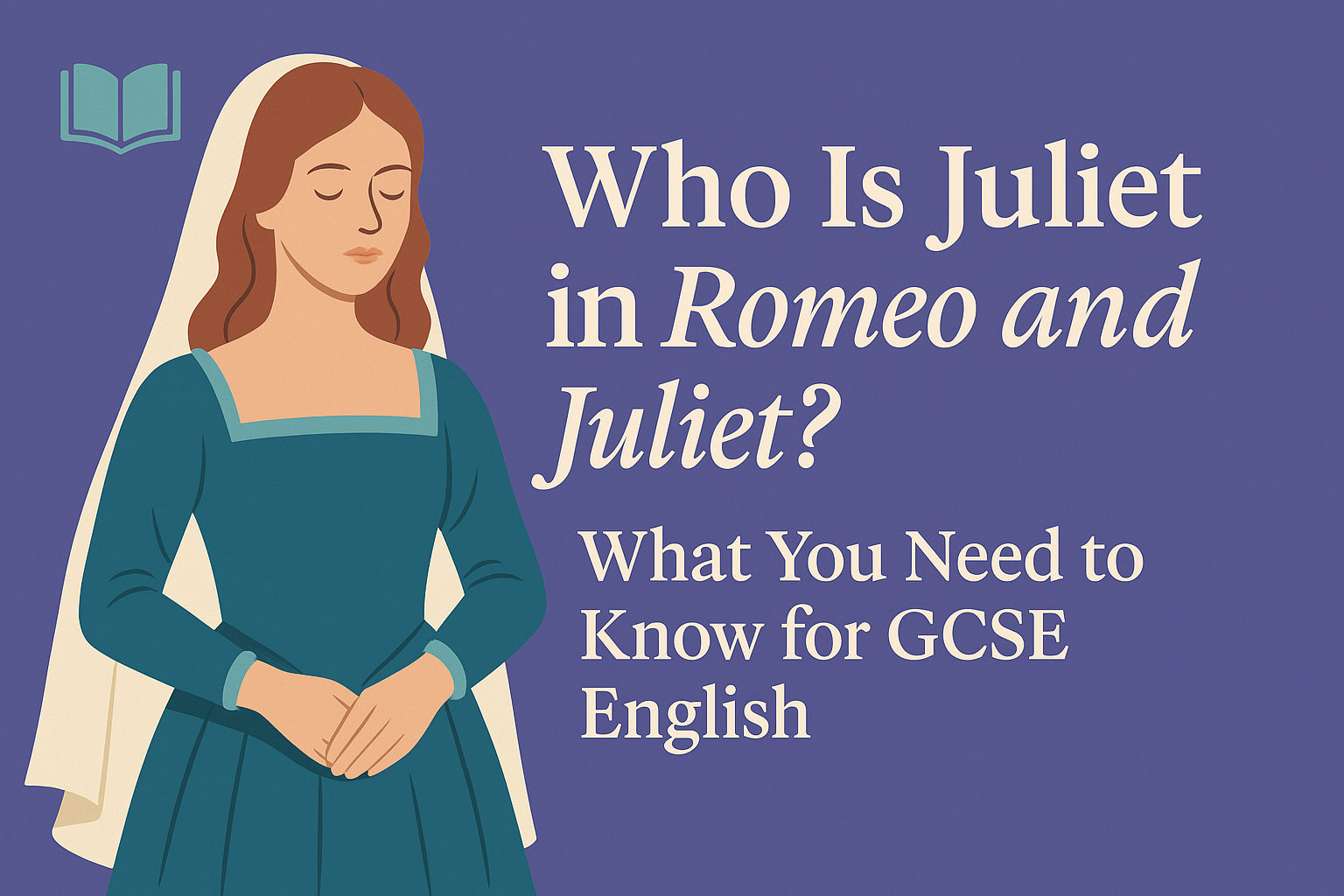Who Is Juliet in Romeo and Juliet? What You Need to Know for GCSE English
If you’re studying Shakespeare’s Romeo and Juliet for GCSE English Literature, one of the most important characters to understand is Juliet. While she’s sometimes remembered as a lovestruck teenager, there’s much more to her than that — and being able to explain how she changes and why she matters is essential for your exam.
As a former Head of English and GCSE examiner, here’s a clear, student-friendly guide to Juliet’s character, her key moments, and why she’s so important in the play.
✅ Who Is Juliet?
At the start of the play, Juliet is a 13-year-old girl from a wealthy, powerful family. She’s expected to obey her parents and marry a man they choose. But when she meets Romeo at a party, everything changes.
Juliet quickly falls in love with Romeo despite knowing their families are sworn enemies. From this moment, she begins to challenge the expectations placed on her.
✅ How Does Juliet’s Character Change?
One of the reasons Juliet is so interesting is how much she changes in a short time:
Act 1-2: Innocent and obedient, but bold enough to fall in love with Romeo and marry him in secret.
Act 3: She becomes stronger and defiant, standing up to her parents and refusing to marry Paris.
Act 4-5: Brave and determined, risking everything to be with Romeo, and eventually choosing to die rather than live without him.
✅ Why Juliet Matters in Your GCSE Exam
You’ll need to be able to explain:
How Juliet changes over the course of the play.
How Shakespeare uses Juliet to explore themes like love, conflict, loyalty and control.
How her language changes — from polite and formal to bold and passionate.
What she reveals about expectations for women in Elizabethan society.
Final Thoughts
Juliet is far more than a lovesick girl: she’s one of Shakespeare’s most courageous and complex characters. A bit of extra help analysing her speeches, unpacking key quotes and practising exam-style questions can make a big difference to your Literature grade.
If you’d like help unpacking her speeches, practising essay questions or improving your GCSE English Literature skills, I offer expert tutoring both online and in-person across Stockport, Cheshire and South Manchester.
Get in touch today for a personalised quote.

